NB: I wrote this in response to a piece by my colleague (and boss!) Jon Gabriel, on Ricochet, where I'm an editor and contributor. I've reproduced his article here:
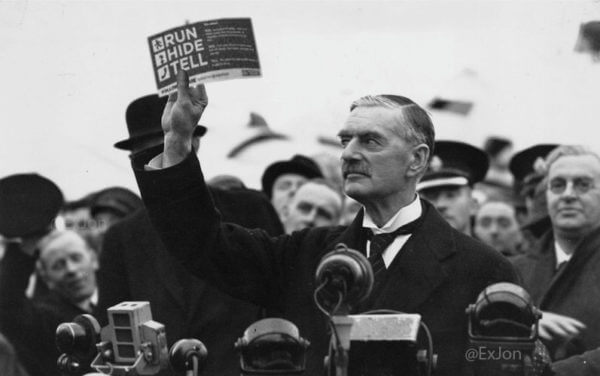

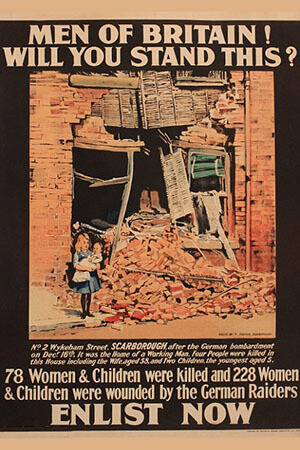
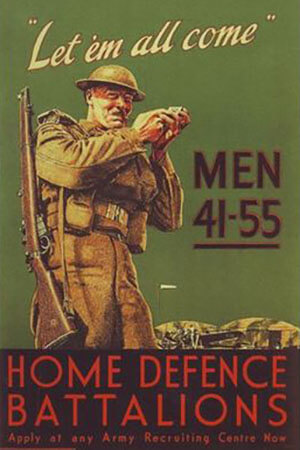
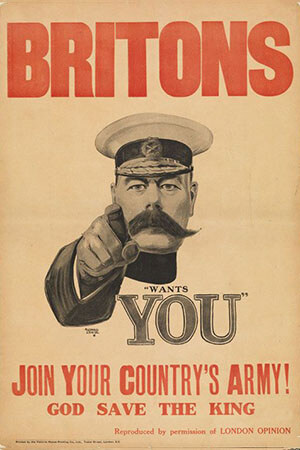
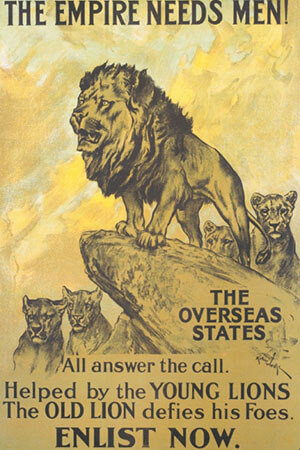
Many Americans believe the British were offended that Obama moved a bust of Churchill. Obama denied that it had been moved. Whether or not it was moved, I’ve never spoken personally to anyone in Britain who was offended by this story. Many have never even heard it. But everyone I know in Britain — and remember, I lived there for seven years, so I do know many people there, and I stay in contact with quite a few of them — is wildly offended by this kind of sneering. It causes real harm to our relationship with the people of Britain. What we say, in fact, on social media and other public fora, causes more offense than anything our politicians say: A politician’s comments can be dismissed, by people with a generous nature, as unrepresentative of the American character. But when ordinary Americans use social media to sneer at our allies, it really leaves a bad taste — and let’s not pretend we would not feel precisely the same way were the situation reversed. We would.
More than 220,000 British personnel have served in Iraq and Afghanistan. According to Ministry of Defence figures, 456 Britons have died in Afghanistan. More than 7,300 have been treated for battlefield injuries, non-combat wounds, or disease related to their service. In Iraq, 179 British service personnel were killed. Some 5,800 were treated in field hospitals. This is a heavy toll. Britain wasn’t attacked on September 11. We were. They are in Afghanistan because we asked them to be. They entered war in Iraq because we asked them to. They did so despite believing it would increase the risk of terrorism on British soil. They did it because they are our allies.
When in response they hear sneering contempt from Americans to the effect that they’re sheeplike, cowardly wusses reminiscent of Neville Chamberlain — illustrated by wartime enlistment posters, clearly meant to suggest that Britons no longer enlist — they respond exactly as Americans would were the situation reversed. They did enlist, and do enlist, and they have been fighting, by our side, since September 11. Here are photographs of British men (and a woman) who died in 2010 in Afghanistan. In this link, you can see more photos of the British men and women who’ve died in every year of that war since it began.
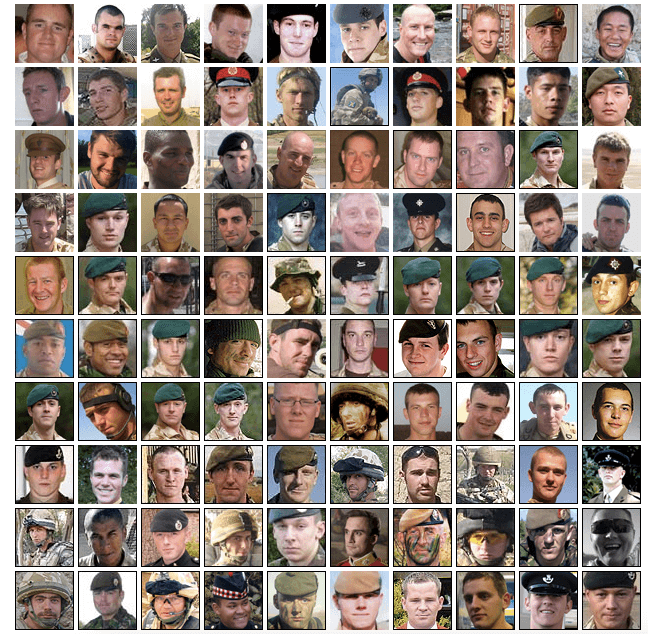
So why would an American, in the wake of an attack on British soil, taunt the British for failing to enlist? Every one of the men above died because they took seriously the promise that an attack on any one of us would be an attack on all of us. Is taunting the British for being “sheeplike” and unwilling to enlist in the fight the right way to show our respect to their families?
Jon posted a photo of the famous “Keep calm and carry on” poster, intimating that the Britain of calm, dignity, and resilience is dead, replaced by a bunch of cowering ninnies. As it happens, that poster — precisely — has been widely circulating on British Twitter in the wake of the attack. But I suspect that if it were a new poster, Americans would be mocking the British for urging calm and normalcy. Our president would be Tweeting, ‘At least 7 dead and 48 wounded in terror attack and the British are saying, “Keep calm and carry on!”‘
President Trump’s tweets caused grave offense. You may think the offense misplaced, but I can promise you they did cause offense, and I don’t find that offense at all hard to understand. What on earth would possess him to use an occasion like this to criticize the Mayor of London? Jennifer Rubin’s description of this is accurate:
The UK has committed 1,250 military personnel to the fight against ISIS. Apart from us, the Royal Air Force has conducted more airstrikes in Iraq and Syria than any other Coalition country. It provides intelligence and surveillance to Iraqi Security Forces. It’s trained 39,000 Iraqi soldiers in engineering, medical skills, and infantry. In Syria, UK armed forces are training Syrian opposition groups in infantry, emergency medicine, and explosive disposal. How does undermining this alliance help us?
Why would we mock the British in the wake of a terrorist attack that killed seven innocent people on their soil? We know what it means to be the victims of terrorism. Why would we spit on our friends? What do we get out of it?
My answer: We get nothing out of it. So I suggest we not do it. It’s not in our interests to harm the friendship between the United States and Britain. And more importantly, it’s just not decent.
--------------------------------------------------------------------------------------------------------------------------
My post prompted a great deal of discussion, which you can read at Ricochet, along with Jon's response. The discussion depressed me, but it also gave me some insight into the sources of anti-Europeanism in America, which in turn gave me some ideas about what it would take to restore our alliances to better health. I'll write more about this in Brave Old World, my crowdfunded book about Europe in the Age of Trump. If you think you'd find these ideas interesting or useful, please do contribute!
--------------------------------------------------------------------------------------------------------------------------

As the London terror attacks were announced late Saturday, the city’s Metropolitan Police Service issued a warning for Londoners to “run, hide, and tell.” (Hence, my Neville Chamberlain Photoshop above.)
The alert system was created after a series of attacks in Paris last year. The UK’s National Counter Terrorism Security Office published advice on what the public should do in a major terror incident. The intention is to get civilians out of the way of both terrorists and security forces, especially since the British public has been effectively disarmed due to aggressive gun and knife control laws.
Instructing Londoners to run, hide, and tell is a dramatic departure from the can-do, stiff-upper-lip, globe-striding empire of a century ago. Here’s how life during wartime looked to Britons not so long ago:





Today, the “young lions” are hard to find. The sheep, however, are plentiful.
--------------------------------------------------------------------------------------------------------------------------
This was my response:
I spent the day yesterday with two friends who were visiting from London. They live quite close to London Bridge. One used to be a Ricochet member. Both were, until recently, solid Atlanticists — and still are — but they’re both offended beyond words by the tone of hostility and contempt for Britain that’s oozing, non-stop, out of the US these days, starting with the President, and echoed by many Americans on social media. I don’t blame them for being offended.
“Instructing Londoners to run, hide, and tell,” Jon writes, “is a dramatic departure from the can-do, stiff-upper-lip, globe-striding empire of a century ago.”
Actually, it’s not.
This guidance has been in place since 2014. It’s not a dramatic departure from anything, although it is a response to studying hundreds of similar situations around the world, including many in the United States. You’ll note that Britons are being told, explicitly, not to surrender or negotiate. The reason they’re emphasizing the seemingly obvious — run — is that we now, unfortunately, have a lot of evidence about how civilians (everywhere) behave during terrorist attacks and other emergencies. Some small percentage of them do behave as we all like to fantasize we would: They become superheroes who defeat the terrorists using any implement available. Unfortunately, in reality, many people don’t do that. They freeze.
“Freezing” seems to be something like a biologic default. It’s a cross-cultural reaction to fear. So people do in fact need to be told, specifically, not to obey that instinct. They need to be warned that their first response may be to deny what’s happening, or be confused by it, and freeze. They need to hear (often, repetitively) that this is not the reaction most likely to result in their survival.
This is why we get a lot of seemingly-obvious warnings about what to do and not do in other kinds of emergencies — e.g., “If you need to evacuate this plane, do not stop to get your luggage.” The reason we hear that all the time isn’t because the airline officials condescendingly suspect we might be idiots. It’s because they know we are. There’s evidence, and a lot of it, that a significant number of people will try to get their luggage, even though every second matters when you’re trying to evacuate a smoke-filled plane, and even though people who try to get their luggage put everyone behind them in mortal danger. And yes, this happens in the US as well as the UK. An NTSB study found that 50 percent — yes, 50 percent — of the passengers in emergency evacuations tried to take their bags. Now, why would they do such a stupid thing? Because most people have no experience of situations like this, and most people don’t respond heroically — or rationally — to them, unless they’ve had a lot of training. No matter what you think you would do, the reality is that in emergencies, many people do dumb things, and unless you’ve been in the situation yourself, you don’t know for sure you wouldn’t be one of them.
“Run, Hide, Fight” is standard protocol for active-shooter situations in the US, too. Are Americans wimps because we, too, need to be told to run and hide? Ah, but you say, part of the advice we get is to fight. Well, no one is telling the British not to fight: And indeed, they fought — they fought back with everything they had on hand: chairs, pint glasses, bottles, discarded bicycle parts. They’ve emphasized “Tell” over “Fight” because that actually makes a lot of sense if you’re living a country where the cops are armed and the terrorists aren’t, and it makes even more sense if the cops are able to get there and kill all of the terrorists within eight minutes. That is, by the way, an impressive achievement, and the appropriate reaction from allies to that news is, “Well done,” not “You remind us of Neville Chamberlain.”
Larry Barton, an American researcher at the University of Central Florida, is the highest-rated instructor at the FBI Academy and US Marshals Service. His research supports both the “run” advice and the giving of the advice. He analyzed 61 deadly assaults in public places from 2006 to 2016 — mostly in the United States. Among those who survived, 73 percent did so by running. Those who ran wound up with no no injuries or only moderate injuries, e.g., a sprained ankle. Of those who survived by hiding — 20 percent — a third were more seriously injured. “Running” is generally the best strategy. It is not always and everywhere the best strategy; there is no such thing as a universally successful solution. But it’s statistically likely to be the best strategy. A highly pro-Second Amendment group, The Truth About Guns, ran simulations of the Charlie Hebdo attack, for example, in which one or more of the civilians were armed. The civilians “died” in every scenario except immediate flight from the scene. So overall, based on evidence, the responsible advice to give the public — whether it’s armed or not — is “run.”
When Americans respond to an event like this by insinuating that the victims of the attack are wimps, or that they would have performed better under the same circumstances, it — unsurprisingly — offends the victims. It offends them terribly, in fact. And pointlessly. As one of the friends who was visiting me yesterday wrote on my Facebook page (in response to an offensive comment to this effect):
Before you sneer at us, may I remind you that the UK has the longest continuous experience of terrorism on its soil of any western country, and the greatest expertise in stopping it. Yes, we have had far too many terrorist incidents, but they are a drop in the ocean compared with the myriad plots that have been foiled. I think it’s fair to say the 9/11 plot would probably have been detected here. A little respect for us might be in order, too.I agree. A lot more respect might be in order.
Many Americans believe the British were offended that Obama moved a bust of Churchill. Obama denied that it had been moved. Whether or not it was moved, I’ve never spoken personally to anyone in Britain who was offended by this story. Many have never even heard it. But everyone I know in Britain — and remember, I lived there for seven years, so I do know many people there, and I stay in contact with quite a few of them — is wildly offended by this kind of sneering. It causes real harm to our relationship with the people of Britain. What we say, in fact, on social media and other public fora, causes more offense than anything our politicians say: A politician’s comments can be dismissed, by people with a generous nature, as unrepresentative of the American character. But when ordinary Americans use social media to sneer at our allies, it really leaves a bad taste — and let’s not pretend we would not feel precisely the same way were the situation reversed. We would.
More than 220,000 British personnel have served in Iraq and Afghanistan. According to Ministry of Defence figures, 456 Britons have died in Afghanistan. More than 7,300 have been treated for battlefield injuries, non-combat wounds, or disease related to their service. In Iraq, 179 British service personnel were killed. Some 5,800 were treated in field hospitals. This is a heavy toll. Britain wasn’t attacked on September 11. We were. They are in Afghanistan because we asked them to be. They entered war in Iraq because we asked them to. They did so despite believing it would increase the risk of terrorism on British soil. They did it because they are our allies.
When in response they hear sneering contempt from Americans to the effect that they’re sheeplike, cowardly wusses reminiscent of Neville Chamberlain — illustrated by wartime enlistment posters, clearly meant to suggest that Britons no longer enlist — they respond exactly as Americans would were the situation reversed. They did enlist, and do enlist, and they have been fighting, by our side, since September 11. Here are photographs of British men (and a woman) who died in 2010 in Afghanistan. In this link, you can see more photos of the British men and women who’ve died in every year of that war since it began.

So why would an American, in the wake of an attack on British soil, taunt the British for failing to enlist? Every one of the men above died because they took seriously the promise that an attack on any one of us would be an attack on all of us. Is taunting the British for being “sheeplike” and unwilling to enlist in the fight the right way to show our respect to their families?
Jon posted a photo of the famous “Keep calm and carry on” poster, intimating that the Britain of calm, dignity, and resilience is dead, replaced by a bunch of cowering ninnies. As it happens, that poster — precisely — has been widely circulating on British Twitter in the wake of the attack. But I suspect that if it were a new poster, Americans would be mocking the British for urging calm and normalcy. Our president would be Tweeting, ‘At least 7 dead and 48 wounded in terror attack and the British are saying, “Keep calm and carry on!”‘
President Trump’s tweets caused grave offense. You may think the offense misplaced, but I can promise you they did cause offense, and I don’t find that offense at all hard to understand. What on earth would possess him to use an occasion like this to criticize the Mayor of London? Jennifer Rubin’s description of this is accurate:
After receiving blowback for that obnoxious missive, he tweeted out, “Whatever the United States can do to help out in London and the U. K., we will be there – WE ARE WITH YOU. GOD BLESS!” But then he decided to slam the mayor of the city attacked, who had calmly warned his fellow Londoners: “Londoners will see an increased police presence today and over the course of the next few days. There’s no reason to be alarmed.” Trump took the second part out of context and responded viciously, “At least 7 dead and 48 wounded in terror attack and Mayor of London says there is ‘no reason to be alarmed!’” (The mayor, of course, was telling them not to be alarmed by the heightened police presence.) Trump was not done, however, inanely tweeting, “Do you notice we are not having a gun debate right now? That’s because they used knives and a truck!”The offense caused by this kind of boorishness has real consequences — for us. It’s insane, right before a British general election, to hand ammunition to a politician like Jeremy Corbyn. But that’s exactly what this kind of behavior from Americans does. It puts defenders of the Anglo-American alliance in a terrible position. And this time, the people who are offended aren’t the usual suspects — they’re not British leftists who have always hated Americans and always will. We’re offending people who have always considered Americans their closest allies. And it isn’t because they’re delicate snowflakes, either. It’s because we’re being offensive. The tone of contempt from Americans, above all, is one no amount of rational argument can counter. If American voters didn’t care for being called “deplorable,” how do you imagine British voters feel about being called cowardly, sheeplike, and a disgrace to their heritage?
The UK has committed 1,250 military personnel to the fight against ISIS. Apart from us, the Royal Air Force has conducted more airstrikes in Iraq and Syria than any other Coalition country. It provides intelligence and surveillance to Iraqi Security Forces. It’s trained 39,000 Iraqi soldiers in engineering, medical skills, and infantry. In Syria, UK armed forces are training Syrian opposition groups in infantry, emergency medicine, and explosive disposal. How does undermining this alliance help us?
Why would we mock the British in the wake of a terrorist attack that killed seven innocent people on their soil? We know what it means to be the victims of terrorism. Why would we spit on our friends? What do we get out of it?
My answer: We get nothing out of it. So I suggest we not do it. It’s not in our interests to harm the friendship between the United States and Britain. And more importantly, it’s just not decent.
--------------------------------------------------------------------------------------------------------------------------
My post prompted a great deal of discussion, which you can read at Ricochet, along with Jon's response. The discussion depressed me, but it also gave me some insight into the sources of anti-Europeanism in America, which in turn gave me some ideas about what it would take to restore our alliances to better health. I'll write more about this in Brave Old World, my crowdfunded book about Europe in the Age of Trump. If you think you'd find these ideas interesting or useful, please do contribute!
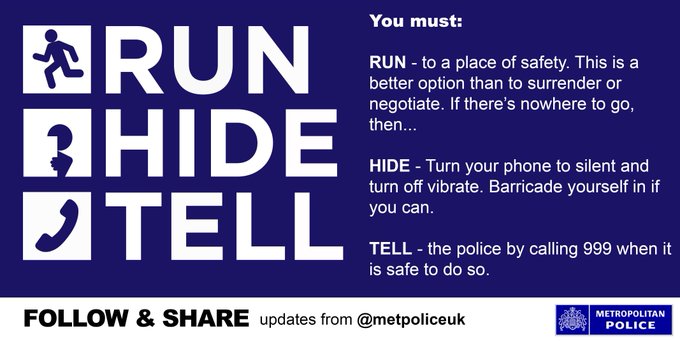

No comments:
Post a Comment
Note: Only a member of this blog may post a comment.